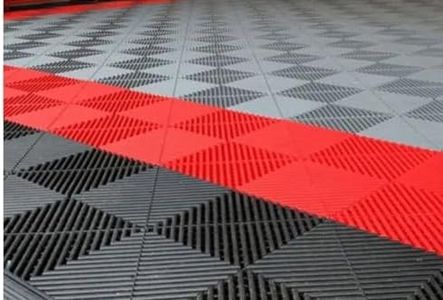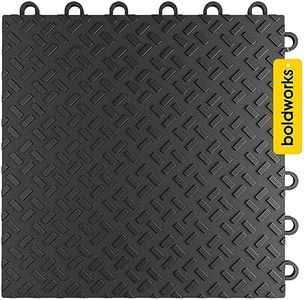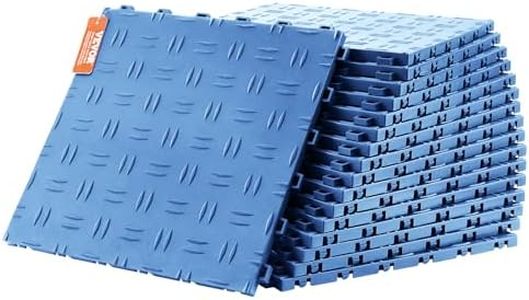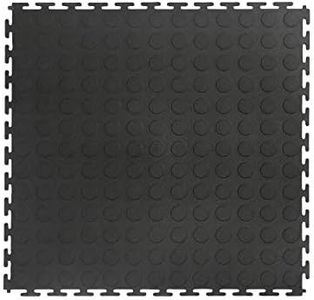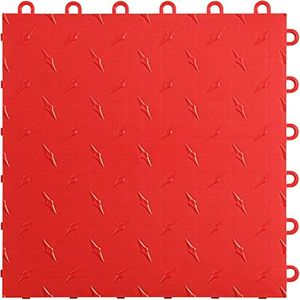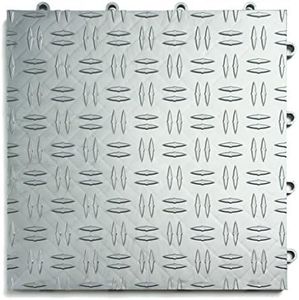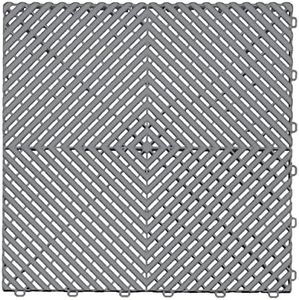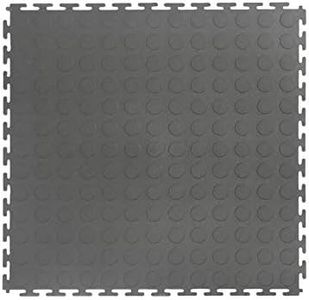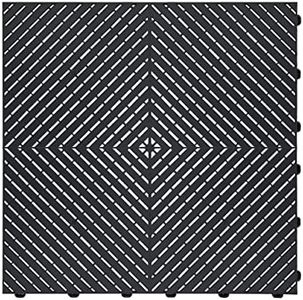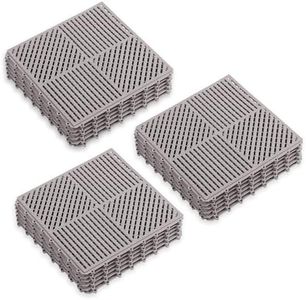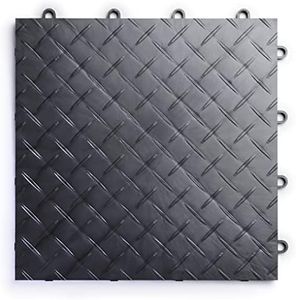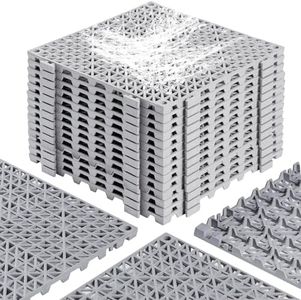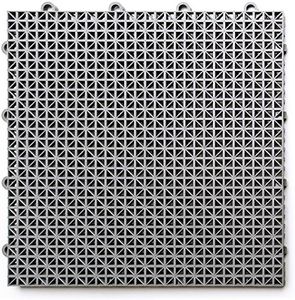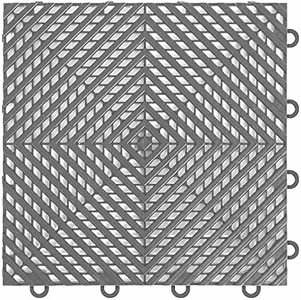We Use CookiesWe use cookies to enhance the security, performance,
functionality and for analytical and promotional activities. By continuing to browse this site you
are agreeing to our privacy policy
10 Best Garage Floor Tiles
From leading brands and best sellers available on the web.By clicking on a link to a third party's website, log data is shared with that third party.
Buying Guide for the Best Garage Floor Tiles
Choosing the right garage floor tiles can greatly improve the appearance, durability, and functionality of your garage. The ideal floor tile will not only handle the weight of vehicles and equipment but also resist stains, spills, and the wear and tear of daily use. To make an informed choice, you should focus on the specific needs of your garage, such as how you use the space, the look you desire, and how much maintenance you're comfortable with. Understanding the key specifications will help you select a tile that meets your requirements and provides long-lasting satisfaction.MaterialMaterial refers to what the tiles are made from, and it’s crucial because it affects durability, resilience, and maintenance. The most common choices are PVC (vinyl), polypropylene (plastic), and sometimes rubber. PVC tiles offer good comfort underfoot and can resist oils or chemicals, making them suitable for busy garages. Polypropylene tiles are tough, provide great support, and usually have better drainage, suitable for garages exposed to moisture or frequent washdowns. Rubber tiles are good for comfort and sound insulation but may not handle heavy vehicle loads as well. You’ll want to think about how you will use your garage—if it’s more of a workshop or gym, comfort materials might be preferred; for heavy car storage, focus on tougher, load-bearing types.
ThicknessTile thickness impacts both strength and comfort. Thinner tiles (around 0.2–0.4 inches) are lighter and usually easier to install, but may not offer enough support for heavy vehicles or equipment. Mid-range thickness (about 0.4–0.6 inches) is suitable for most home garages, balancing durability with manageability. Thicker tiles (over 0.6 inches) are typically used in commercial applications or for garages supporting very heavy loads. If your garage sees frequent vehicle use, or you store heavier machinery, choose at least mid-thickness tiles to avoid cracking or deformation.
Surface TextureThe texture affects your tile’s grip and their ease of cleaning. Smooth-surfaced tiles look sleek and are easy to sweep, but can get slippery when wet. Diamond plate or coin patterns are popular non-slip options, providing traction and resistance against slipping, especially useful where spills or moisture are common. Vented tiles have holes or grooves allowing water to drain away, great for garages that get wet or need frequent cleaning. Choose smooth if you want easy cleaning and a showroom look, textured for safety, and vented if you have moisture or wash the floor often.
Installation MethodMost garage tiles are designed to be modular and feature interlocking edges. Snap-together or interlocking tiles are simple to install, require no glue, and can be replaced individually if damaged. Adhesive-based tiles offer a more permanent solution but are harder to remove or change. For home users who want flexibility and ease of installation, interlocking types are usually the best choice, allowing for easy rearrangement and expansion down the road.
Weight CapacityWeight capacity indicates how much weight a tile can support without cracking or deforming. Lighter-capacity tiles are fine for foot traffic, bikes, or light tools, while heavy-capacity tiles are essential if you’ll be parking cars, trucks, or using heavy equipment. Always check this rating against your garage's most demanding use—it's better to choose a tile with a weight capacity that’s more than your heaviest item.
Chemical and Stain ResistanceResistance to chemicals and stains is vital because vehicle fluids, oils, and cleansers are common in garages. Not all tiles resist these substances equally, so look for products specifically noted for their chemical resistance if you expect spills. Tiles with this spec can be wiped clean easily and are less likely to suffer discoloration or deterioration over time, which is important if your garage is often used for mechanical work or car maintenance.
Ease of MaintenanceThis spec refers to how simple the tiles are to keep clean and maintain. Smooth and sealed surfaces are generally easiest to sweep and mop, while textured and vented tiles might trap dirt or require more frequent cleaning, but provide better traction. Consider how much time you want to spend maintaining your garage floor, and if you prefer a lower-maintenance option, smoother or sealed tiles are typically preferable.
